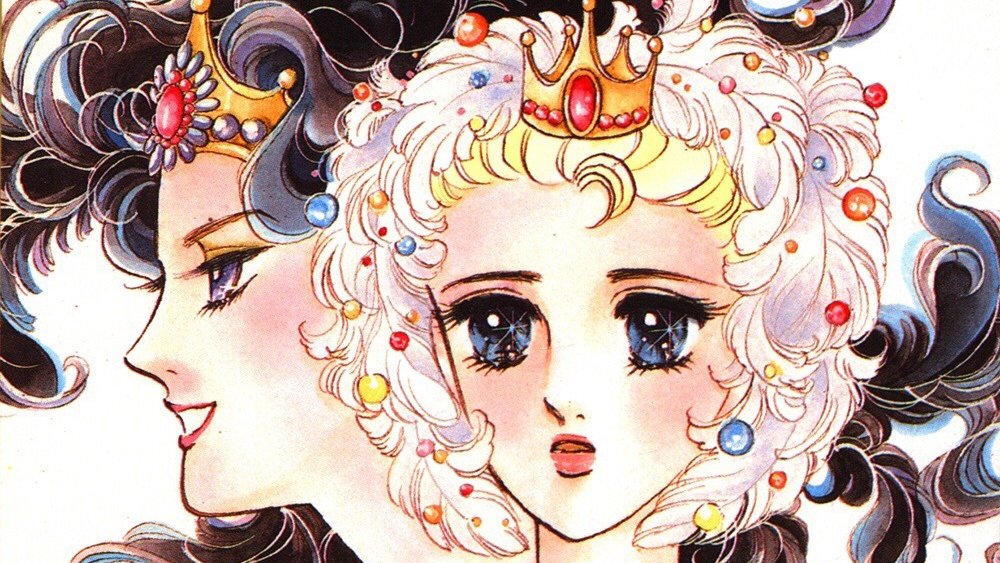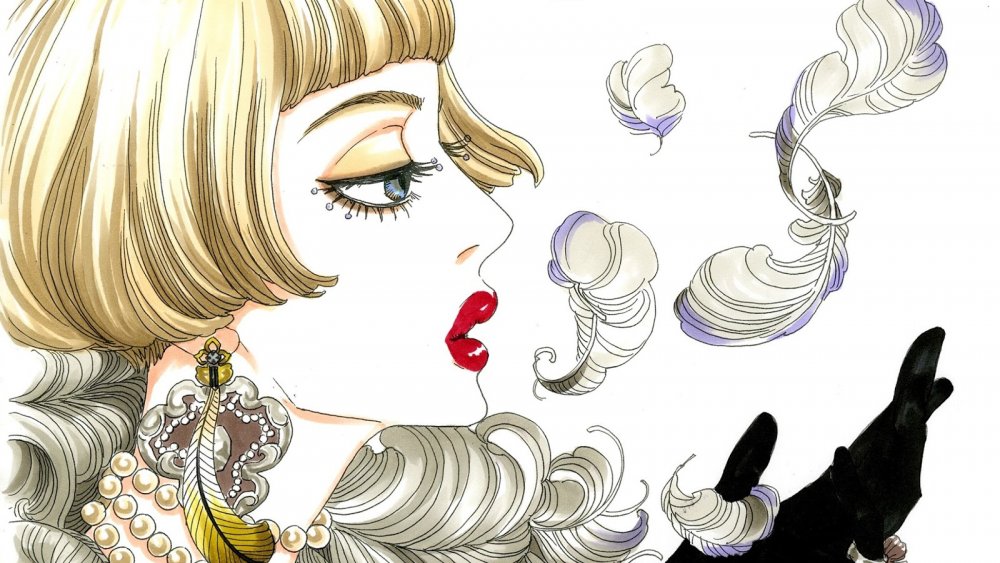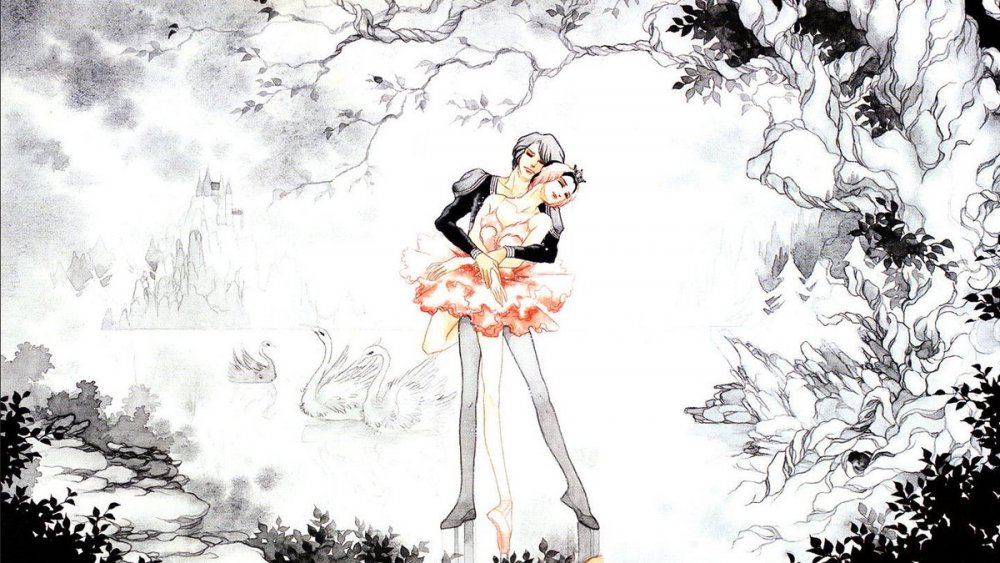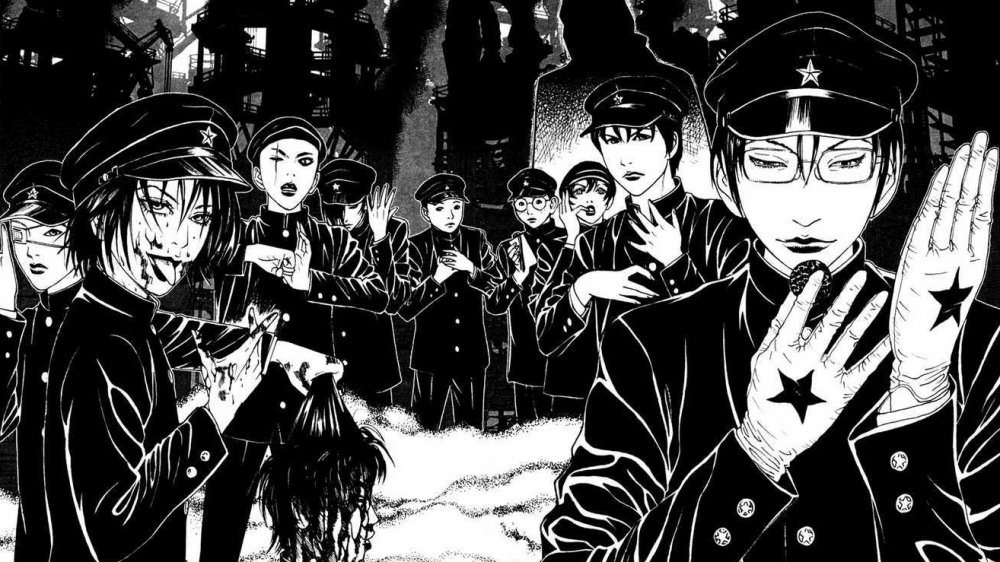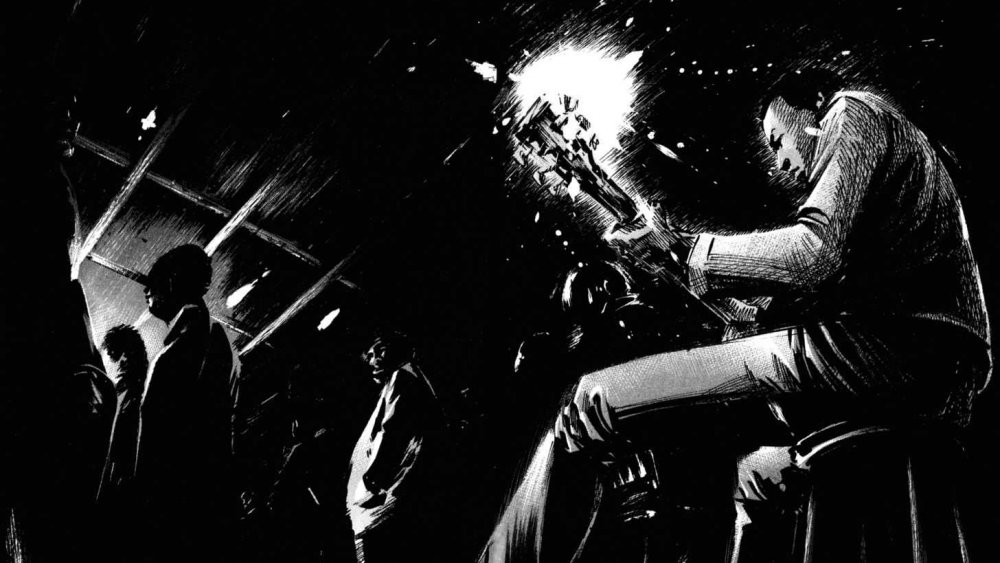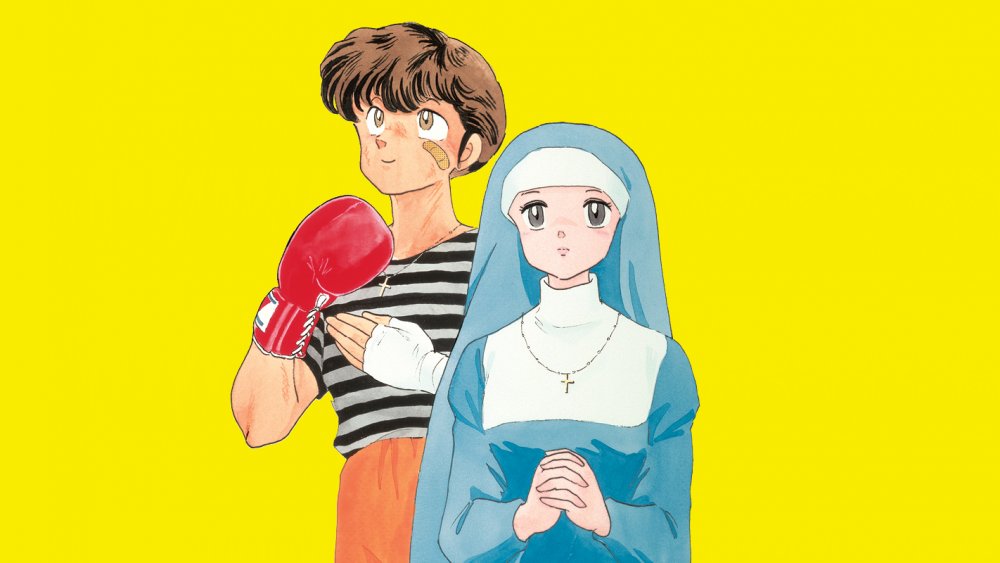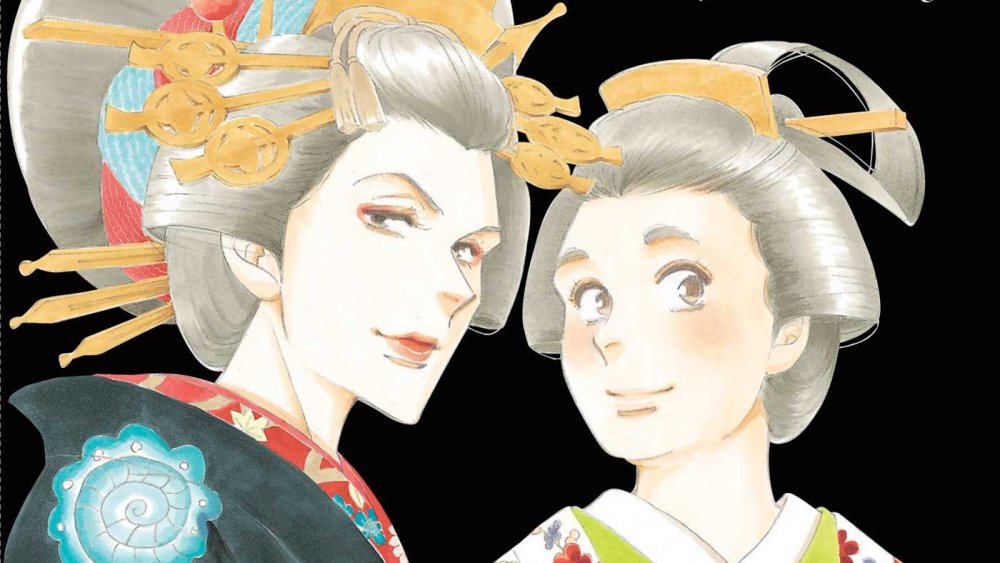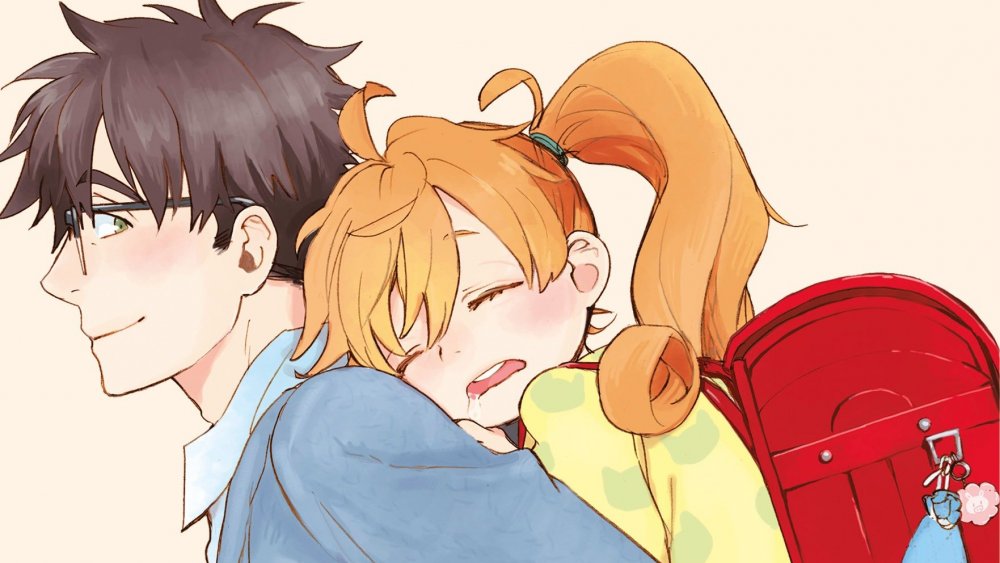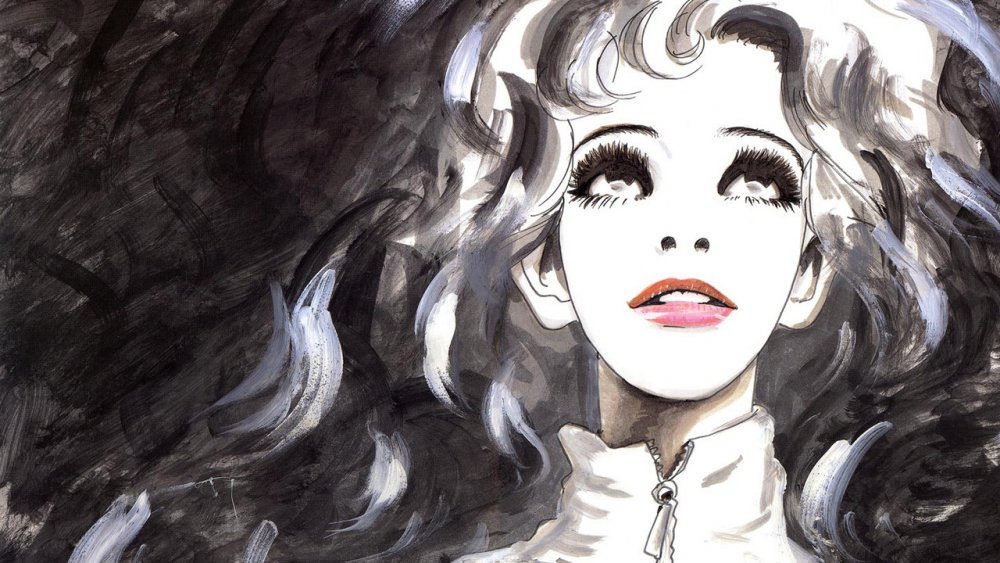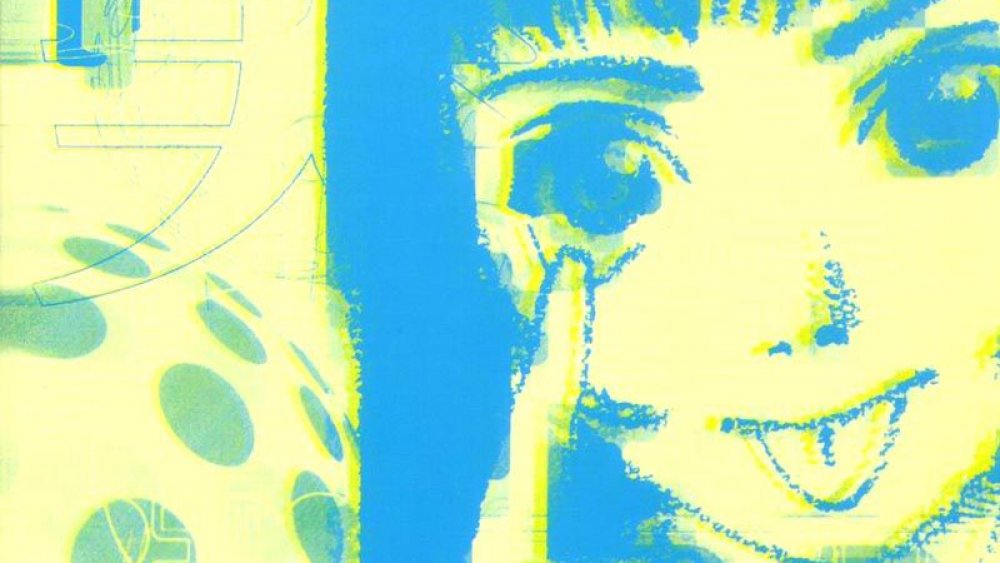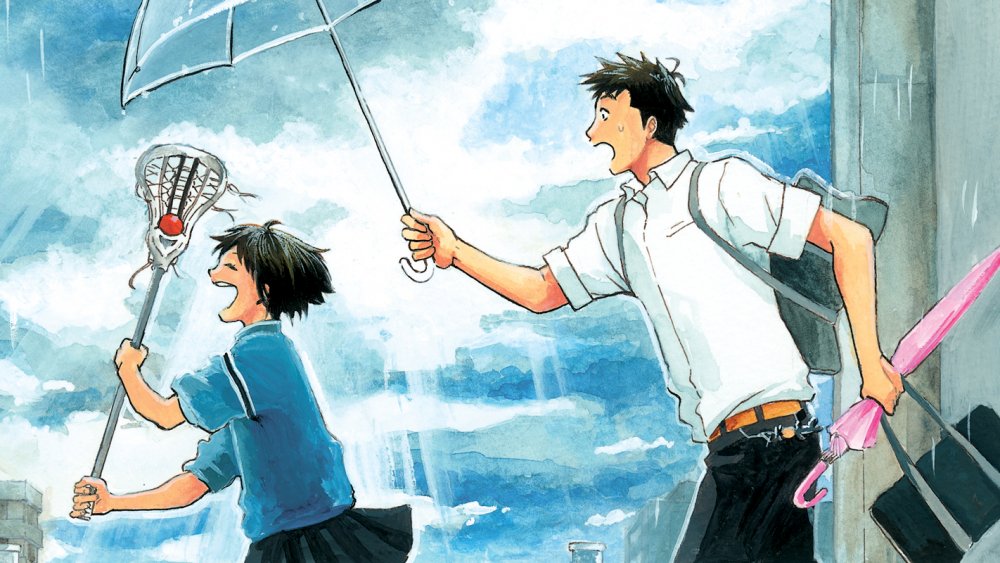The Best Manga You've Never Heard Of
Sailor Moon, Death Note, My Hero Academia — you know them, you love them, you've lent out your copies so many times you've lost count. Manga has conquered the world, from Pokémon-reading grade schoolers to horror hounds eager for the latest from Junji Ito. There's a series out there for everyone, and an absolute ocean of content to swim through. Plus, in the age of simultaneous publishing, e-readers, and the lightning-fast work of today's professional translators, it's easier than ever for anyone, with any device or a library card, to dive into the depths of the Japanese comic book industry.
But for all the blockbuster titles out there, getting kids and grandparents alike into Chi's Sweet Home and Goodnight Punpun, there are thousands more that pass beneath the radar. The reasons why are myriad: ambitious genre-blending, out-there art, sheer bad luck. Yet these titles are as deserving of attention as any well-loved copy of Bleach. Join us as we explore the world of underappreciated manga, one page at a time.
Memoirs of Amorous Gentlemen
Decadence is the means and the end in Memoirs of Amorous Gentlemen, a manga set in a Parisian brothel near the beginning of the 20th century. Fishnet stockings are worn with feather boas. Luxurious silk furniture is crowded into elegantly wallpapered boudoirs. Fringe, lace, and beading dangles from every possible throat, sofa, and lamp. Excess isn't simply a matter of aesthetics in this world — it's a way of life.
But for all its glamour and finery, it is the costs of beauty that are at the heart of this manga. Colette, Mignot, and all the other women of the bordello might fill these pages with sparkling eyes and bejeweled fingers, but the story doesn't stop when they reach the end of their day. We see them take off their jewelry and makeup, count their earnings, sigh over their disappointments, and swallow whatever secrets have no place in a house of pleasure and delight. This is a story about real people whose job it is to create, night after night, an utterly unreal world. In that tension between what is said and unsaid, glamorized and erased, celebrated and obscured, Memoirs of Amorous Gentlemen plants its feet, takes a deep breath, and tells both sides of the story.
Swan
Upon meeting a dancer she admires, Masumi, our heroine, finds she cannot speak. Words cannot convey the depths of her feeling towards this person — and so she dances. So impressed is the dancer that he sets Masumi on the path to ballet greatness, via admission to an elite school known for turning out the finest dancers. Thus begins Swan, a story about passion, compromise, and the exacting world of professional dance.
Swan hits every high school/sports manga beat you might expect: grueling auditions, tender friendships, hard-won moments of glory. But as you encounter these tropes, Swan reminds you why they exist at all. Those awkward conversations with your crush? Those split-second defeats? Those unexpected triumphs? When the creator has put the work in, they land like no other fictional development does. That's why we have so many school stories, tournament arcs, and last-minute-hustle chapters: because when they're done right, as in Swan, they are exhilarating. Swan reminds you why art matters, what it felt like to be a teenager on the precipice of greatness, and the sheer, wild freedom that can be grasped, if only for a moment, through joyful movement. You might not be a teen ballerina training for your role in The Firebird, but Swan knows that at some point, you have wanted something with that intensity. In capturing that passion, it steps onto the stage of manga greatness.
Lychee Light Club
Boys gather in a secret clubhouse to discuss what adulthood will bring. It could be the plot of a jaunty, all-ages adventure, but Lychee Light Club dumps a bucket of gore all over those sunny possibilities. The boys of the Light Club are terrified of growing older, seeing adulthood as a surrender to crude ugliness, and they embrace their unspoiled youth with a fervor that curdles into obsession. Lychee, the automaton they build to abduct beautiful girls and, eventually, carry out torture and executions, is the sum of their desires. It's no wonder he brings about their destruction as well.
Lychee Light Club is an ugly story about horrible people tearing each other apart — sometimes literally. Gore is plentiful, depraved acts bookend every chapter, and the conclusion is less a culmination than a conflagration of misery and violence. Yet a tender, tragic hope is kindled in each character, visible from the first chapter to the last: dreams of friendship, love of siblings, belief in a worthwhile future. Those stubborn flames are what make Lychee Light Club's obscenity devastating, rather than merely disturbing, and the series as a whole an unforgettable descent into darkness.
Yokohama Shopping Log
The apocalypse has come and gone in the world of Yokohama Shopping Log... and that's okay. This is the twilight of the Anthropocene, as observed by Alpha, our robotic heroine, and on Japan's Miura Peninsula, people have made their peace. Alpha runs a cafe in this placid place, from which she observes the comings and goings of humanity. Coffee brewing, festival planning, and scientific discussion all have equal weight, especially to her: Alpha is functionally immortal. The people she loves grow, wither, and die, beholden to a landscape that has changed beyond their recognition. But this isn't a tragedy — it's just life.
Yokohama Shopping Log's power isn't merely in its mixture of cataclysm and laid-back life, but in its acceptance of death. It is plainly sad to watch people from Alpha's unchanging point of view, and to see the world we live in crumble around her. Yet Alpha's unique viewpoint doesn't just provide melodrama, but absolution. Nothing is as it was and life might not look like it once did, but so what? Love, jealousy, discovery, and joy still take place in this landscape. The sun continues to rise and set. People might use anti-aircraft missiles, leftover from some conflict or another, as fireworks, but they're still finding reasons to come together and celebrate life. Yokohama Shopping Log looks death in the face and shrugs. Happiness is temporary. The end will always come. Why not live while you can?
Me and the Devil Blues
Robert Johnson is as much a legend as he is a ghost. A master of the Delta blues style, Eric Clapton called him "the most important blues singer that ever lived," yet there are only two known photographs of the man, and just a handful of recordings. Having died at 27, Jonhson simply did not have enough time to leave a vast and varied legacy — which is where mythmaking enters the picture. Johnson's story is infamously intertwined with folklore about his meeting with the Devil at a crossroads, where he exchanged his soul for towering talent.
Me and the Devil Blues takes this account and runs with it. Within these lushly inked pages, Johnson makes his bargain, blazes a brilliant trail across the blues landscape, and realizes, little by little, the price one pays for greatness. There's a wild, almost hallucinatory edge to this manga: moons fade into guitar sound holes, musicians flail wildly, almost possessed by their art, and the landscape is thick with shadow. These surreal touches bring home Johnson's glorious highs and devastating lows with a breathtaking intimacy — a deal with the Devil was made, and he will always have his due. Johnson is a protagonist unlike any other, as subject to the whims of greatness and evil as he is a figure of unapproachable genius. Me and the Devil Blues is strange, sorrowful, and sublime, just like Johnson's unforgettable music.
One Pound Gospel
Boxing isn't the kind of thing that can be done by halves. Good thing that's exactly how Kosaku likes to live every aspect of his life: he punches hard, eats constantly, and loves with all his heart. Sister Angela, a novice nun, appears to be his opposite, as a creature of sacrifice, humility, and obedience. But as someone unsatisfied with everyday piety, looking instead to devote her entire life to God, Angela isn't actually all that different from Kosaku. It's no wonder they became friends — and no wonder that that friendship blossoms, steadily, into something more.
An early work from Rumiko Takahashi, superstar creator of Inuyasha, Ranma ½, and Urusei Yatsura, One-Pound Gospel is a lot more low-key than the manga she's most famous for. But reading it reveals why her work is so renowned in a unique way: no one is better at telling stories about people being changed by those they love. Kosaku and Angela find, in coming together, that they aren't entirely the people they'd believed themselves to be, and that they contain possibilities they'd never thought to explore. Kosaku might be flighty, but he can love with a granite steadiness. Angela is meticulously poised, but she will risk it all for the sake of what is right. Seeing them grow together isn't just delightful in the Takahashi tradition — it's a journey.
Ooku: The Inner Chambers
Ah, Feudal Japan, that era of steely samurai and iron-fisted shogun. A familiar setting to any anime fan, but rarely in the manner Ooku depicts it. In this alternate history, the vast majority of Japanese men died in a sex-selective plague known as the Redface Pox. 80 years on, women do the world's roughest work, conduct the most brutal business, and occupy the highest positions in the land. Indeed, the most powerful person in all of Japan, the head of the Tokugawa shogunate, is a woman — and only she can lay claim to the ooku, a harem of beautiful men.
One might guess, from that description, that Ooku is a soapy, salacious romp of a story. That's not entirely untrue — romance ensues, gossip rages, and betrayals erupt up and down the palace hierarchy — but Ooku's genius is in how deeply it examines those events. Steamy trysts become explorations of shifting gender roles. Elite sniping reveals the ways in which calamity becomes history, and history becomes cliche. Nothing is too minor for Ooku to find tremendous meaning in, from a fishmonger's clothes to the tiniest details of naming conventions, because nothing in life is ever really minor. We are all shaped by the world we inhabit, and in exploring the one occupied by its unlikely female shogun, Ooku explores this truth with uncommon depth.
Sweetness and Lightning
Half a year prior to our story's start, tragedy struck the Inuzuka family when Tae, wife to Kohei and mother to Kindergarten-bound Tsumugi, passed away. Sweetness and Lightning finds the bereaved father and daughter making do, but only just — especially when it comes to food. Fate intervenes in the form of Kotori, who offers to teach the single dad how to properly cook for himself and his child. He's clueless, Tsumugi is hungry, and Kotori's family has a restaurant with a kitchen perfect for practice — how could he say no?
Sweetness and Lightning contains all the elements of total schmaltz: tragic death, precocious children, and unlikely people finding family in each other. Yet its genius is in its light touch. Tsumugi might have a clever line now and again, but she is still the kid who begins each morning yowling for cartoons. Tae's death lies like a shadow across the husband and child she left behind, but they've learned to put one foot in front of the other, one day at a time. The cooking lessons are a perfect example — they're wonderful moments of creativity and joy, but they certainly don't always result in something scrumptious, or even edible. Sweetness and Lightning is about life as it is lived by most of us: steadily, frustratingly, ecstatically, and, in time, with wisdom. And hopefully, with a whole host of delicious, home-cooked meals.
Helter Skelter
Liliko, our supermodel protagonist, has reached the pinnacle of her career. Gorgeous, sought-after, and carefully nipped and tucked into surreal perfection by an army of plastic surgeons, she has everything she's ever wanted — and it has left her utterly empty. Liliko is the monster the world made of her, from her abusive treatment of assistants to her panic upon meeting the ingenues who will one day dethrone her. When her body begins to break down, overtaxed by her punishing schedule, extensive surgery, and the monstrous way the fashion industry treats its models, she faces a point of no return. One question looms darkly: Whether she will be dragged kicking and screaming into the void, or if she'll leap headfirst into its dark embrace.
Helter Skelter isn't content to merely shock its readers, nor to paint a tragic picture of a poor little rich girl gone wrong. What it does is far more complicated, tragic, and frankly, weird — which makes it one of the strongest works of indie manga available to English language readers. Liliko is a victim, an accomplice, a perpetrator, a work of art, and the artist herself, all at once, from the first page until the last. At no moment are you allowed to forget these overlapping identities, nor who benefits from them, it rarely being Liliko herself. Helter Skelter, like its protagonist, is a mess of glitter and gore. That's what makes it unforgettable.
Short Cuts
When Western readers think of manga, they picture superheroes in pastel skirts, pointy-haired mutants, and wild-eyed high schoolers with a dream, a destiny, and a giant cursed sword that may or may not be able to talk to them. But what ends up on Anglophone shores isn't necessarily representative of manga as a whole. Consider Short Cuts, a series of short gag strips more like The Far Side than Naruto — and just as off-the-wall funny.
If there is a theme to Short Cuts, it is the kogal, 1990s Japan's iconic Japanese schoolgirl. Her socks are loose, her laughter is loud, and whatever she knows is cool is bound to be something you've never heard of. Short Cuts eviscerates the cultural obsession with her, taking everyone from salarymen to Buddhist monks to task for being fascinated by, essentially, kids doing kid things. But that's not all it skewers. TV shopping channels, capital punishment, giant robot nerds — all of these and more are put on Short Cuts' chopping block. Is it brutal? Oh yeah. Short Cuts doesn't even spare itself, dedicating one particular strip to mocking the creator in a teenager's unsparing voice. But that's what makes it the acerbic treat it is, one joke about proper kneesock bagginess at a time.
Cross Manage
Sakurai is a high school boy who doesn't really know what kind of person he wants to be. Having bounced from club to club without making much of a splash in any of them, he finds himself drawn to Toyoguchi, an energetic member of the girl's lacrosse team. In short order, he's become the team's manager, despite being someone who's gone on record as not understanding the concept of playing sports for fun. Yet as he describes himself on the very first page, he's long felt like "soda without fizz," so anything's worth trying.
In many ways, Cross Manage sticks to the sports manga formula: grueling practices, disappointing setbacks, transcendent victories, and above all, an ironclad camaraderie. But in positioning Sakurai as the manager rather than a player, the script is flipped. Sakurai isn't the one in the spotlight, and his concern for the team is as something between a peer (he is, after all, a fellow student) and a teacher. It's a fascinating position to put an apathetic character in, and it yields immediately satisfying results that only deepen with further chapters. Cross Manage is about heart, perseverance, friendship, and all the other classic Shonen Jump values you love. But in keeping its hero out of the limelight, it shakes things up and becomes a modern classic of sports manga.
